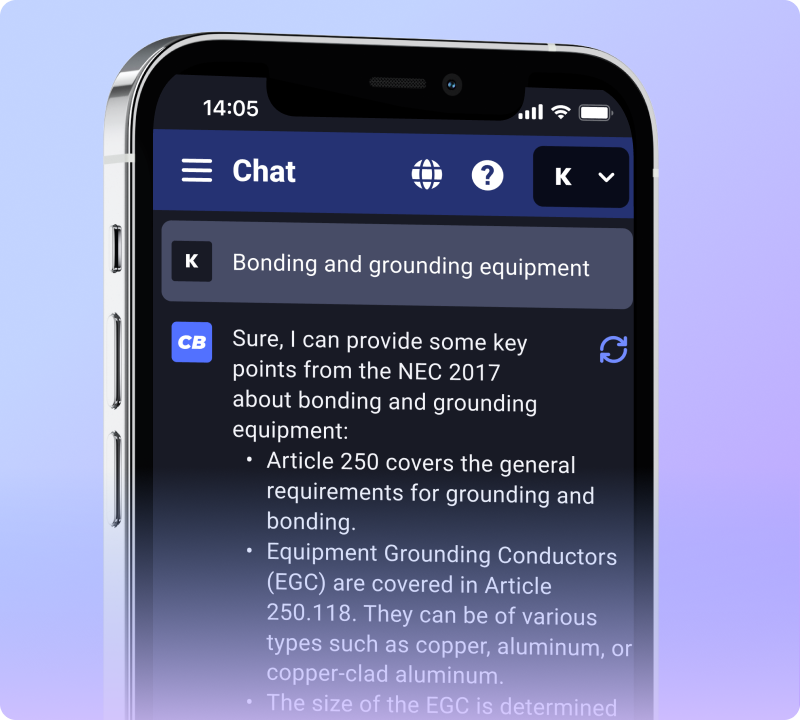Starting a new career can feel tricky. One fact is clear: becoming an electrical estimator is a smart move for many. This article will show steps to launch your career in this field, including training and skills you need.
Keep reading to learn how!
Key Takeaways
- Start by working as an electrician to build a strong foundation.
- Get formal training in electrical estimating and improve key skills like attention to detail and communication.
- Gain certifications, use digital tools for accuracy, and learn from mentors in the field.
How to Become an Electrical Estimator
To become an electrical estimator, start by gaining experience as an electrician. Then, pursue formal training in electrical estimating to build your knowledge and skills.
Become an electrician first
Becoming an electrician is the most common way to start a career as an electrical estimator. This hands-on experience lays a strong foundation in the electrical trade. Working as an electrician helps you understand how projects are managed and what materials are needed.
Experience makes it easier to estimate costs accurately.
Training as an electrician also allows you to learn manual take-offs before using software estimating programs. This knowledge is key for anyone looking to enter the field of electrical estimating.
An understanding of project details will help when creating accurate bid proposals for construction projects.
Formal electrical estimating qualification
Formal electrical estimating qualifications can boost your career as an electrical estimator. An associate’s or bachelor’s degree in electrical technology, electrical engineering, or construction management is beneficial.
These degrees help you understand the technical skills needed for cost estimation and project management.
Hands-on experience as an electrician provides a great start for this role. Learning to do manual take-offs before using estimating software is essential. This practice builds a strong foundation for accurate estimations.
Networking with professionals in the field can also lead to new job opportunities in electrical estimating and aid in skill development.
Hone skills and attributes
After gaining formal electrical estimating qualifications, aspiring estimators should hone their skills and attributes. A strong attention to detail is key for effective electrical estimating.
Understanding the basics of the electrical trade helps in making accurate estimates.
Good communication skills are also essential. Electrical estimators must share information clearly with team members and clients. Seeking mentorship can boost your learning process.
Experienced mentors provide guidance that speeds up skill development. With focus on these areas, you can prepare for a successful career as an electrical estimator.
Adapt to key roles and responsibilities
An electrical estimator must adapt to key roles and responsibilities. They work on estimating costs and materials for electrical projects. Attention to detail is essential in this job.
Understanding the basics of the electrical trade helps estimators succeed. Strong communication skills matter too, as they need to convey ideas clearly.
Aspiring estimators should learn how to perform manual take-offs before using software programs. This skill builds a solid foundation for their career development. Having a mentor can speed up learning in this field.
It allows them to gain insights from experienced professionals. Networking also opens doors for job opportunities in the electrical estimating market.
Network and build relationships
Networking is key for electrical estimators. Building relationships helps you find job opportunities in the field. Join groups that focus on electrical estimating and attend industry events.
Meeting experienced people can lead to valuable learning experiences.
Mentorship plays a crucial role here. Having a mentor can speed up your growth as an estimator. They provide guidance based on their experience in the construction industry. Strong communication skills help build these connections, making it easier to learn from others and advance your career as an electrical estimator.
Seek professional learning and development
Building relationships is key in the electrical estimating field. Seeking professional learning and development helps you grow your skills. Courses and certifications can boost your knowledge of electrical estimating.
They can also open doors to new job opportunities.
A mentor is valuable for guidance along this path. Learning from someone with experience can speed up your progress. Strong attention to detail is crucial as an estimator, so practice refining this skill.
Effective communication is equally important in conveying estimates clearly. Using digital tools will improve accuracy in cost management too, which benefits any project team leader or quality assurance manager role you pursue later on.
Typical Pay for an Electrical Estimator
The pay for an electrical estimator can vary by role and experience. Many estimators earn competitive salaries, which can increase with promotions or specialized skills.
Different roles within estimating
Electrical estimators can hold different roles. They often work as project team leaders. In this role, they coordinate the estimating process for projects. Attention to detail is crucial here.
A good estimator must understand the basics of the electrical trade.
Another role is quality assurance manager. This person checks all estimates for accuracy and compliance with building codes. Electrical contracts managers focus on managing contracts and bids related to electrical projects.
Each role requires strong interpersonal skills, along with training in electrical estimating education or certification programs.
Project team leader
A project team leader is vital in electrical estimating. This role involves guiding the estimating team and ensuring accuracy. Successful leaders have a strong understanding of the electrical trade.
They oversee estimating costs and materials for projects. Paying attention to detail is key here.
Experience as an electrician helps build strong leadership skills. A good leader connects well with others on their team. Strong communication skills are essential for this job. Exploring opportunities in electrical estimator networking can also aid career advancement.
Being a project team leader opens doors to various roles in electrical estimation careers.
Quality assurance manager
A quality assurance manager plays a key role in electrical estimating. This position ensures that estimates are accurate and reliable. They check the bids and plans before work begins on job sites.
Attention to detail is crucial for success in this role.
Electrical estimator certification programs can help prepare individuals for this job. Strong communication skills are also important. Managers often work with project leaders to meet market conditions and client needs.
Experience as an electrician helps enhance their understanding of the trade. With training, they can advance in their careers and take on more responsibility.
Electrical contracts manager
An electrical contracts manager plays a key role in projects. They oversee the costs and materials for electrical work. This job often requires experience as an electrician, which helps in understanding project needs.
Good attention to detail is vital for success in this position. Strong communication skills are also necessary to work with teams effectively.
Different roles within estimating can lead to various opportunities. A career as an electrical estimator offers paths like project team leader or quality assurance manager.
Ways to Improve Accuracy in Estimating
Using digital tools can help you be more precise in your estimates. Studying the National Electrical Code will also improve your understanding and accuracy.
Use digital tools
Digital tools help electrical estimators improve their work. These tools make estimating faster and more accurate. Learning how to use software programs is very important. Before using these tools, it’s good to master manual take-offs first.
This skill helps estimators understand the basics of their job better.
An electrical estimator can benefit from various digital resources. Many programs save time and reduce mistakes in bids and calculations. Familiarizing yourself with National Electrical Code also enhances accuracy in estimates.
Gaining experience through training or certification improves your skills further. Good digital skills open up many job opportunities in the electrical estimating field.
Familiarize with National Electrical Code
Understanding the National Electrical Code is essential for electrical estimators. This code sets the rules for safe electrical installations. It helps to ensure that projects meet safety standards.
Knowing this code can improve accuracy in estimating project costs and materials.
Aspiring electrical estimators should learn how to do manual take-offs first. This skill helps them understand the details of a project before using software tools. A strong grasp of these basics will build a solid foundation for their career development.
By gaining experience, they become more effective at their job and can better navigate the electrical estimator job market.
Obtain electrical estimation certification
Obtaining electrical estimator certification is key for career growth. This certification shows that you have the skills needed to estimate costs and materials accurately for electrical projects.
It can boost your chances of getting a job in the field. Many employers look for candidates with this qualification.
Courses are available to help you gain this certification. You can also find electrical estimating training programs online or at local schools. Having a mentor can guide you through this process, making it easier to learn and improve your estimating skills.
Next, let’s explore ways to improve accuracy in estimating.
Gain experience and learn from mentors
Gaining experience is key to becoming a skilled electrical estimator. Working under an experienced mentor can help you learn faster. A mentor will provide guidance and share valuable insights.
This support helps you develop the right skills and knowledge for the job.
Manual take-offs are one important skill to practice before using software programs. Learning this from someone with experience can make a big difference in your work. Attention to detail is crucial in estimating, so follow your mentor’s advice closely.
Building relationships within the industry also opens up more job opportunities as an electrical estimator.
Conclusion
A career as an electrical estimator offers many opportunities. Start by gaining experience as an electrician. Get the right education and training to boost your skills. Build relationships in the field and look for growth chances.
With hard work, you can succeed in this exciting job.
FAQs
1. How can I kickstart my career as an Electrical Estimator?
To start a career as an Electrical Estimator, you may consider degree programs related to electrical estimating and quantity surveying. You could also look into electrical estimator certification programs for professional development.
2. What skills do I need to develop for a successful Electrical Estimator career?
As an Electrical Estimator, it’s crucial to focus on skills development in areas like reading bid documents and understanding the basics of quantity surveying.
3. Are there many job opportunities for electrical estimators?
There are plenty of job opportunities in the field of electrical estimating. Career advancement is possible with continuous professional development and gaining relevant experience.
4. How does certification help in advancing my career as an Electrical Estimator?
Electrical estimator certification programs provide advanced training that can boost your professional standing, making you more attractive to employers thus enhancing your career development prospects.


